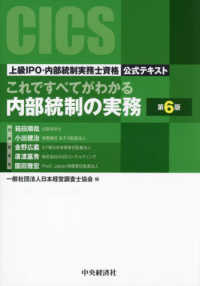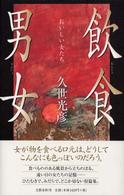Full Description
This volume of Advances in Music Education Research with the idea of research as "situated inquiry." We intend this metaphor to stand for a general description of the contextualized processes music education researchers use to frame, generate, augment and refine knowledge. The works in this volume illustrate the many ways in which knowledge has been constructed out of multiple approaches to studying an idea or exploring questions. All seek to expand our knowledge of music education in some form.
How we go about engaging in knowledge construction, and what we learn from the different processes involved, is a function of the activities, contexts, and cultures in which our work is "situated." Both knowledge and action is "located," that is, research is placed, positioned or embedded (Lave & Wenger, 1990). Each study illustrates these ideas: All are informed by different theoretical frameworks, use different pathways to explore problems of interest and concern, and have something important to say to different constituencies or stakeholders. All, however, are the result of perceived phenomena or human interpretations of a context.
Situated inquiry is neither a quantitative nor qualitative approach to research, nor is it a "mixed-methods" approach. Rather, situated inquiry is a function of the beliefs and behaviors of the individuals involved in it. It is also a function (and outcome) of the individuals who seek to join a community of practitioners who practice and engage in research. Although the authors in this volume identify with or have self-selected to employ specific kinds of approaches, they exemplify their communities of practices by the very discourses and structures of their reports. Active perception, however, remains central to their inquiry and to the way they frame, generate, augment and refine knowledge.
Contents
Foreword: A Brief Consideration of Research as Situated Inquiry, Linda K. Thompson and Mark Robin Campbell.
Chapter 1. Straight, No Chaser: Talking About Race and Music Education, Adrienne Dixon.
Chapter 2. I'm Gonna Be a Rock Singer ... And People Gonna Love Me: Urban Preschool Students' Musical Experiences, Vanessa L. Bond.
Chapter 3. Music Teachers Investigate Their Work: Collaborative Inquiry as Curriculum Making and Professional Development, Melissa Natale-Abramo and Mark Robin Campbell.
Chapter 4. Amy's Leaving Story: A Narrative of Music Teacher Attrition, Tami J. Draves.
Chapter 5. Music Education and School Choice Reform: Music Programs in New York City Charter Schools, Kenneth Elpus.
Chapter 6. Function-Based Music Education: A Framework for Facilitating Musical Learning and Developing Human Relationships Through Analyses of Two Prison Case Studies, Maud Hickey and Mary L. Cohen.
Chapter 7. Music Education and Avocational Music Making: Examining Discourse Using Techniques From Corpus Linguistics, Roger Mantie.
Chapter 8. The Interplay of Composing, Developing Musicianship, and Technology: Complexities and Connections, Sandra Nelson.
Chapter 9. Motivation and Meaning Construction Among Members of Two Senior Adult Musical Ensembles, Samuel Tsugawa.
Chapter 10. Six Perspectives on Peer Review in Music Education Research: Introduction, Mark Robin Campbell and Linda K. Thompson.
Chapter 11. Peer Review, Susan Wharton Conkling.
Chapter 12. The Successful Peer Reviewer, William I. Bauer.
Chapter 13. Reflection on the Publication Process and Tips for Authors, Colleen Conway.
Chapter 14. Peer Review as Apprenticeship to the Academy, Peter Whiteman.
Chapter 15. Participating in the Peer Review Process in Music Education: An Early Career Perspective, Joshua A. Russell.
Chapter 16. Developing Expertise in Peer Review, Lisa Hunter.
About the Authors.







